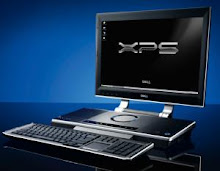Linux (commonly pronounced /ˈlɪnəks/[3]) is a generic term referring to Unix-like computer operating systems based on the Linux kernel. Their development is one of the most prominent examples of free and open source software collaboration; typically all the underlying source code can be used, freely modified, and redistributed by anyone under the terms of the GNU GPL[4] and other free licenses.
Linux is predominantly known for its use in servers, although it is installed on a wide variety of computer hardware, ranging from embedded devices and mobile phones to supercomputers.[5] Linux distributions, installed on both desktop and laptop computers, have become increasingly commonplace in recent years, owing largely to the popular Ubuntu distribution and to the emergence of netbooks.[6][7]

No comments:
Post a Comment